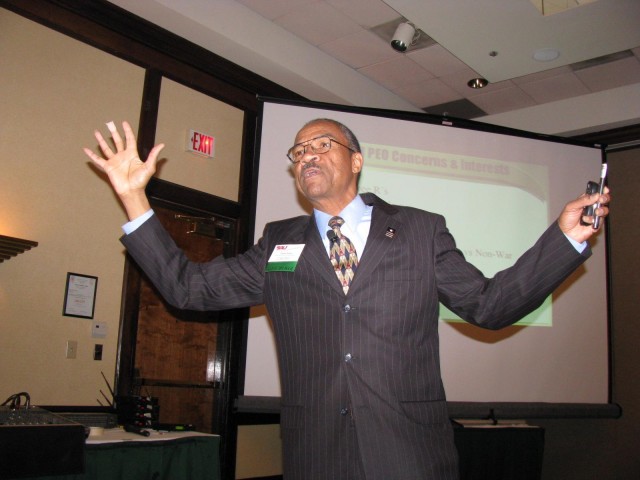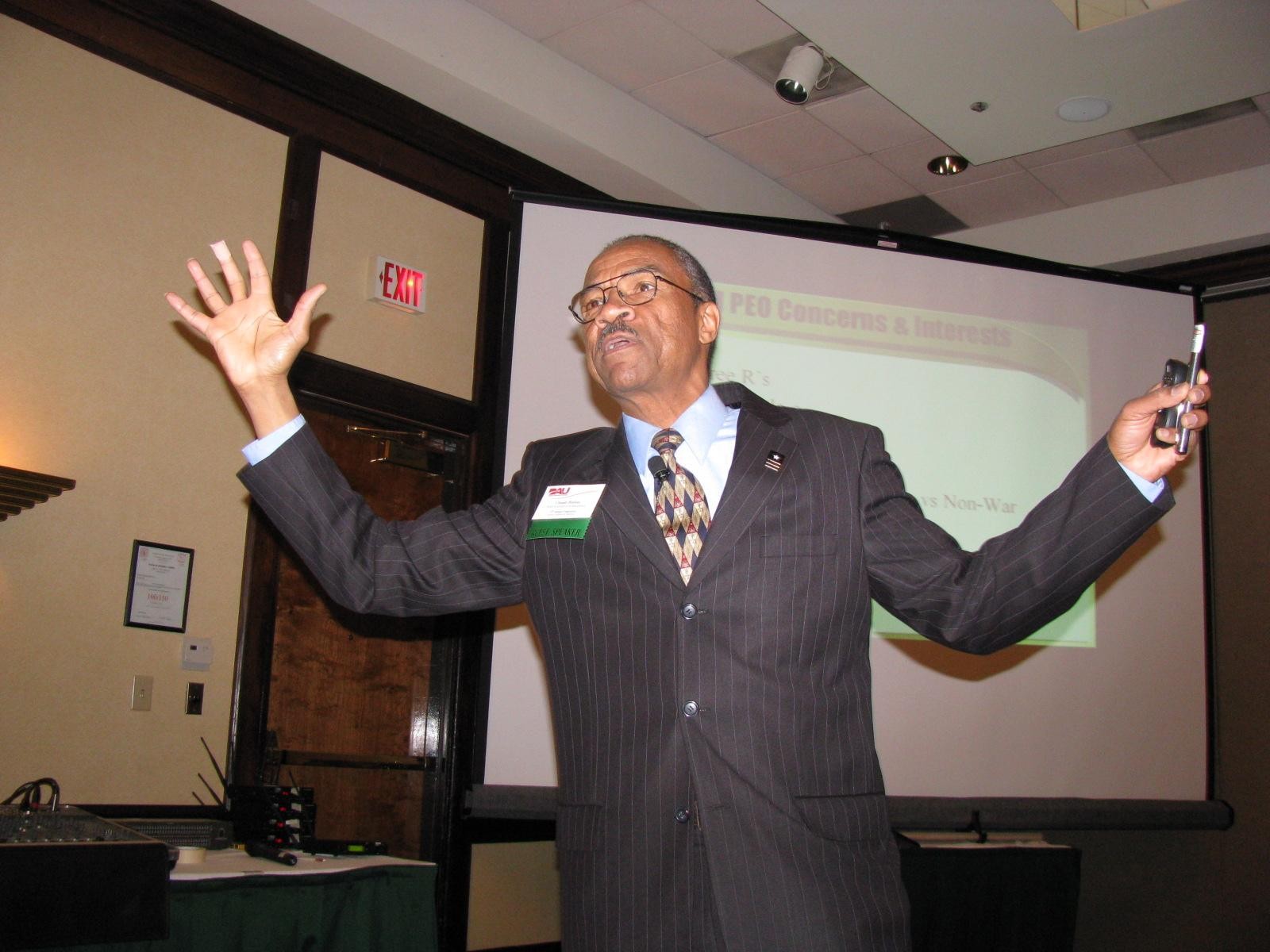
Expertise in the areas of acquisition, technology and logistics is the key to making a difference for the war fighter on the battlefield, said a top executive of the Defense Acquisition University.
Claude Bolton, a retired Air Force major general who was named in January as the DAU's executive-in-residence, told attendees at DAU's South Region annual conference on Jan. 18 that the work of DoD's acquisition, technology and logistics employees ensure Soldiers have the "right product at the right time in the right place and at the right cost."
About 350 attendees participated in the fifth annual conference and expo at the Huntsville Marriott. The theme for the conference was "Learn, Perform and Succeed ... Facing Challenges in the 21st century." It included workshops on "Challenges of the Contracting Workforce," "Program and Financial Management Lessons Learned," "Acquisition Training," "Acquisition Perspectives of the Senior Engineer in the Program Executive Office" and performance based logistics for both Army and Navy programs.
"You make it happen," Bolton told civilian and military acquisition, technology and logistics employees who attended the conference's keynote luncheon.
"The folks down range don't write the requirements, don't translate the contracts, don't purchase the hardware and software, don't provide training and logistics. People like you do that. What you do makes a big difference to folks down range ... Say a prayer tonight for the Soldiers who are on point for us, protecting us. And remember what you do and how you do it makes a difference. It's up to you."
Bolton reviewed the concerns and interests of the program managers who work in the Army's program executive offices and who rely on AL&T employees to support their programs.
At the top of that list are the three "Rs," he said, which stand for requirements, resources and relief.
"Everybody has to understand the requirements -- the warfighter, the acquisition experts, the development and test folks, and the sustainers. Not everybody really understands requirements and as a consequence we have problems," Bolton said.
"When it comes to resources, we need the right money, tools, processes and guidance. And relief is having the right people on the government and contracting sides. Violate one of the three Rs and you're toast."
Other concerns are the relationships between acquisition management and its employees, the political environment, core processes, budget constraints, life cycle management, ethics, DoD prototyping policy, oversight increase and expertise decrease, termination process, and acquisition work force and leadership commitment.
The only element in these concerns that "remains unchanged whether we're firmly at war or in peacetime is you," Bolton said. "Our job is to help the Soldier fight and win wars when our country asks us to do that."
Bolton reviewed for his audience the history of the nation's wars as they relate to cost and the gross domestic product. Comparing 2005 figures, the Iraq war has cost 4 percent of the GDP while the Revolutionary War cost 68 percent of the GDP, World War I cost 109 percent of the GDP and World War II cost 130 percent of the GDP. He also showed the audience how low military spending is as it relates to the nation's spending on things like health care, automobiles and holidays.
"This is a big country with a huge economy," Bolton said. "No country has ever survived -- certainly not as a country or as the number one power -- without an Army ... The U.S. is a peaceful loving country. Yet, the conflicts with U.S. involvement show that every generation has fought a major war."
As military spending has been reduced, the Army has found ways to operate leaner. Bolton mentioned several cost-reducing programs that have been incorporated during the past 15 years, including Lean Six Sigma.
"We are one-third to 40 percent of where we were when the wall went down (between east and west Germany) in '89," he said. "But we've got to do even more ... We've got to get the whole team together. When the budget gets cut -- and it will -- and we don't have a team effort there's going to be trouble, and that trouble will show up a decade later when Soldiers don't have what they need."
The AT&L community must work together to make smart business decisions and deliver timely and affordable capabilities to the war fighter, Bolton said.
As DAU's executive-in-residence, Bolton supports the DAU's president, faculty and students with strategic planning, course development and mentoring. His primary focus is to assist the DAU president with recruiting, retaining, training and educating the DoD acquisition work force.
Bolton's civilian career has also included service as the assistant secretary of the Army for Acquisition, Logistics and Technology, where he was the Army Acquisition Executive, the Senior Procurement Executive and the Science Adviser to the Secretary. He was also the senior research and development official for the Department of the Army, and had principal responsibility for all Department of the Army matters related to logistics.
Bolton served in the Air Force for more than 30 years and is a Vietnam veteran pilot with more than 232 combat missions over North Vietnam. He has held positions as commander of the Air Force Security Assistance Center, test pilot for the F-4, F-111, and F-16, program executive officer for the Air Force Fighter and Bomber programs, and the first program manager for the Advanced Tactical Fighter Technologies program. He recently completed his 34th marathon.

Social Sharing